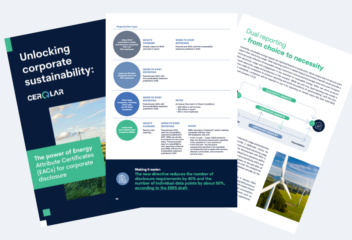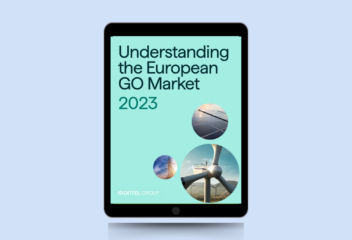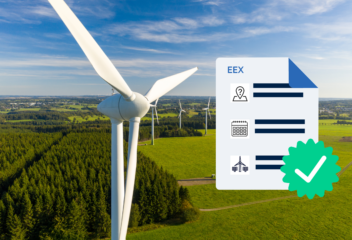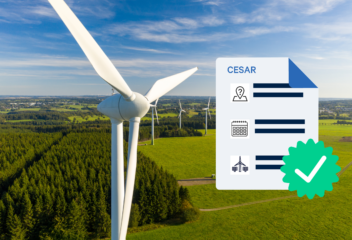iRecs: Empowering Renewable Energy and Sustainability
In a world grappling with climate change and the urgent need to transition to sustainable energy sources, initiatives and standards play a vital role in driving the renewable energy revolution. One such standard that has gained prominence in recent years is the International Renewable Energy Certificate, commonly known as iREC. In this blog post, we will explore the concept of iREC, its significance as a standard in the energy industry, and dive into the concept of iREC energy.
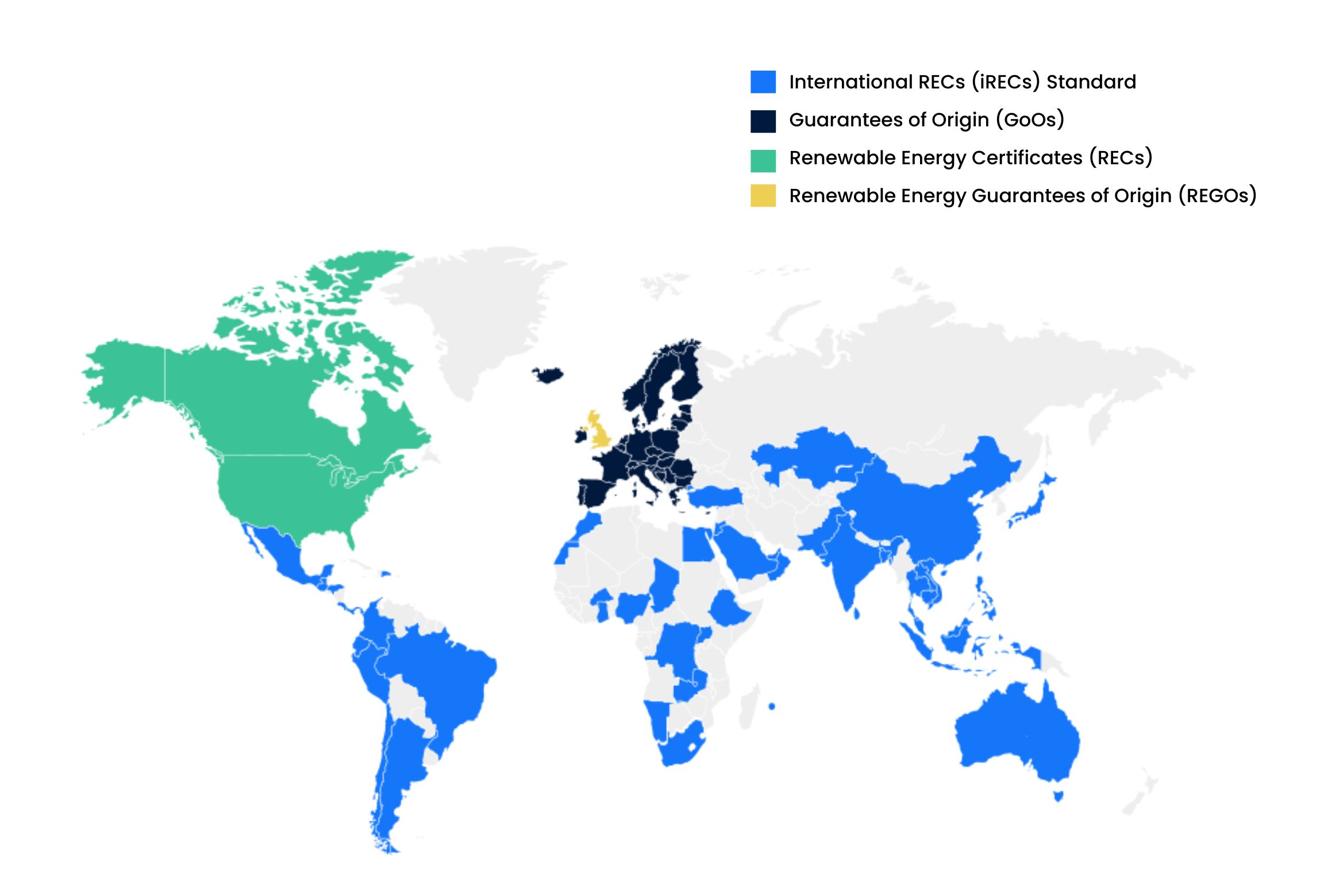
Renewable energy certificates: Paving the way to sustainability
Before diving into the specifics of iREC, it is important to understand the broader concept of renewable energy certificates (RECs). RECs are tradable instruments that represent the environmental and renewable attributes of a unit of electricity generated from renewable sources. These certificates provide proof that a certain amount of electricity has been produced using renewable sources, enabling consumers and businesses to support renewable energy without physically consuming it.
Global transition to renewable energy
The world has recognized the need to shift from fossil fuels to renewable energy sources to mitigate climate change and reduce carbon emissions. Various international agreements, such as the Paris Agreement, have emphasized the importance of transitioning to clean energy. Governments, businesses, and individuals are actively seeking ways to increase their use of renewable energy and reduce their carbon footprint.
Introducing the iREC Standard
The iREC Standard, short for the International Renewable Energy Certificate Standard, is a robust and globally recognized framework developed by the International REC Standard Foundation (I-REC Standard). As a non-profit organization, the I-REC Standard aims to provide a reliable and auditable standard for attribute tracking systems in the renewable energy sector and beyond. In the realm of renewable energy certificates, the iREC standard stands out as a leading certification system.
iREC serves as a global framework for verifying the production and use of renewable energy. It ensures transparency, credibility, and international recognition for renewable energy projects.
At its core, the iREC Standard’s International Attribute Tracking Standard promotes good governance and best practices among market facilitators involved in tracking instruments and associated markets. This standardization enables harmonization, recognition, market support, and independent oversight, making it a reliable choice for various products within and beyond the energy sector.
The iREC Standard and its associated Product Codes provide a dependable foundation for recognized issuers, stakeholders, and government bodies. By implementing and operating attribute tracking systems based on these standards, they can ensure reliability and consistency. This fosters trust and transparency, enabling end-users to confidently obtain products with documented origins and transparent accountability.
How iREC works
iREC operates as a certification system that tracks and verifies the production and consumption of renewable energy. When a renewable energy project generates electricity, it can apply for iREC certificates based on the amount of renewable energy produced. These certificates are then made available for purchase by energy consumers, who can use them to substantiate their renewable energy usage claims. The iREC Standard plays a vital role in facilitating unbiased access to product information. By adhering to the standard, organizations can empower consumers to make informed choices by confidently selecting products with documented renewable energy origins.
Credibility and international recognition
Project-specific considerations:
One of the key advantages of iREC is its credibility and international recognition. iREC is backed by rigorous standards and procedures, ensuring the accuracy and reliability of the certificates. Acknowledged by major reporting frameworks such as the Greenhouse Gas Protocol (GHGP), CDP, and RE100, the iREC Standard serves as a backbone for credible and transparent tracking instruments. It ensures the highest quality systems and adherence to best practices, effectively preventing issues like double counting, double certificate issuance, and double attribute claims. Moreover, iREC is widely accepted and acknowledged in both domestic and international markets, providing assurance to energy market participants.
iREC renewable energy: Unleashing the power of clean electricity
When electricity is generated from renewable sources such as solar, wind, hydro, or biomass, it possesses certain unique attributes that differentiate it from electricity generated by conventional fossil fuel-based methods. These attributes include the reduction of greenhouse gas emissions, the conservation of natural resources, and the promotion of sustainable energy practices.
iREC energy represents these renewable attributes associated with a specific quantity of electricity. It acts as a means to track and quantify the environmental benefits of renewable energy generation. For every unit of electricity produced from renewable sources, a corresponding iREC certificate is created, which certifies the renewable attributes of that electricity.
By purchasing iREC certificates, businesses and individuals can effectively claim the environmental benefits of renewable energy without physically consuming the electricity itself. This mechanism allows for the separation of the renewable attributes from the physical electricity, making it possible to support renewable energy projects and contribute to a cleaner, more sustainable energy future.
Benefits of iREC: A win-win for all
iREC offers numerous benefits for energy producers, consumers, and the environment. Let’s explore some of the advantages of adopting iREC:
- Meeting Renewable Energy Targets:
For energy producers, iREC provides a tangible way to demonstrate compliance with renewable energy targets set by governments or organizations. It enables them to showcase their commitment to sustainability and differentiate themselves in the market.
- Regulatory Compliance:
With the growing emphasis on renewable energy regulations, businesses can utilize iREC to ensure compliance with renewable energy standards and reporting requirements. iREC certificates serve as proof of renewable energy usage and can simplify the compliance process.
- Environmental Impact:
By supporting renewable energy projects through the purchase of iREC certificates, energy consumers contribute to the growth of clean energy infrastructure. This leads to a reduction in greenhouse gas emissions and environmental impact, accelerating the global transition to a low-carbon future.
- Economic Opportunities:
The adoption of iREC creates economic opportunities by stimulating investment in renewable energy projects. When energy consumers purchase iREC certificates, the revenue generated can be reinvested in the development of new renewable energy initiatives. This leads to job creation, economic growth, and innovation in the renewable energy sector. Furthermore, the increased demand for iREC-certified energy incentivizes the expansion of renewable energy infrastructure, contributing to the overall sustainability of the energy industry.
- Risk Mitigation:
Investing in iREC provides a level of risk mitigation for energy producers and consumers. By diversifying their energy portfolio and supporting renewable energy projects, businesses can reduce their exposure to fossil fuel price volatility and potential supply disruptions. Additionally, iREC offers a stable and transparent marketplace for renewable energy trading, minimizing the risks associated with fluctuating energy prices and market uncertainties.
Exploring the market impact of iREC
The I-REC Standard Foundation plays a crucial role in providing rules and best practices to market facilitators, allowing electricity users worldwide to make evidence-based choices when procuring renewable energy. One notable example is the Electricity REC (I-REC(e)) scheme in Brazil, which adheres to the I-REC Standards’ International Attribute Tracking Standard. This collaborative project between the Brazilian Wind Energy Association (ABEEólica) and the Brazilian Clean Energy Association (Abragel) aims to provide reliable and robust options for Brazilian end-users to choose their electricity sources while supporting their preferred electricity generators. I-RECs in Brazil are issued by Instituto Totum, the authorized I-REC Issuer.
The Brazilian I-REC(e) market has experienced significant growth and increased interest from electricity generators and trading groups. According to Fernando Lopes, the Director of Instituto Totum, the number of I-REC transactions in Brazil has been steadily increasing, with an estimated 10 million I-RECs expected to be issued this year. These I-RECs originate from various renewable assets such as hydroelectric, wind, solar, and biomass plants, including newly registered facilities like the UTE Biogás Bonfim. The growing demand for renewables is evident in the involvement of major organizations like Copel and Enel, both actively participating in the I-REC market.
Another example is the impact iREC has on the renewable energy industry is the impact it has had on the Asian market. Inspired by the successful integration of EAC markets in Europe, which have enabled cross-border transactions of clean power, facilitated the growth of clean energy generation, and enhanced corporate procurement options and cross-country EAC transactions, Asian governments and utilities are striving to achieve similar agreements that align with their clean power ambitions. To facilitate this goal, frameworks such as iREC help maintain international standards and make international clean energy trading possible.
Embracing the power of iREC
iREC stands as a significant standard in the renewable energy industry, empowering businesses and individuals to make a tangible impact on the global transition to clean energy. With its robust certification system, iREC ensures the verification and credibility of renewable energy production and consumption, enabling organizations to meet sustainability targets and support the growth of clean energy infrastructure.
As you navigate the dynamic renewable energy market, it is crucial to leverage the potential of iREC and explore its implementation in your energy practices. Additionally, tools such as CerQlar can help you streamline your inventory management and maximize your trading, ensuring you always have the data on hand to access the certificates you need for each trade.





